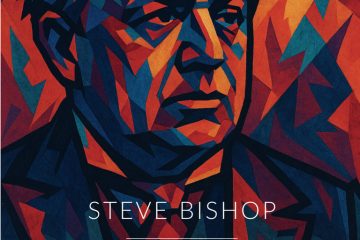The famous French Nobel Prize winning author Albert Camus (1913-60) once said that Christianity is a religion for old ladies.
Today many western, secular people would agree with Albert. Christianity is just for children and simpletons. A Sunday hobby you outgrow when mature. Such people have metabolised the narrative that goes back to the epoch we call the Enlightenment. Its message?
We have grown up and we are enlightened by the light of ‘reason’. We live as if there is no God. We live as if everything is just physical. We trust in our science and technology to save us. We live as if there is no final judgment. So eat, drink and play golf merrily for tomorrow we die. Let us bask in how ‘modern’ and ‘enlightened’ we are to have seen through the childish, jejune follies of faith in Jesus Christ.
Let the children, the dimwits and the old dears trust in God. We know better. We will try hard not to smirk too much when boneheads mention God, Jesus and prayer.
Both Albert and his famous friends Jean-Paul Sartre and Simone de Beauvoir struggled to live boldly without God. Of course, they were enlightened. The handsome, daredevil Camus was an accomplished seducer of other mens’ wives and Simone de Beauvoir, Sartre’s ‘feminist’ partner, procured many young, nubile virgins for the chain-smoking Sartre to deflower, consume and then to discard when boredom set in.
Enlightenment, however, comes in two stages for the serious opponents of God. In the first, dizzy flushes of secular enlightenment we reject God but we hold on to our moral responsibilities with fierce commitments. This was the path that the Victorian novelist George Eliot (1819-1880) embraced. She confessed:
“God, Immortality, Duty. How inconceivable was the first, how unbelievable was the second, and yet how absolute the third.”
Eliot was a woman who gave up on God, renouncing miracles, the cross and resurrection hope but she was desperate to keep goodness in the frame.
This is the first stage of secular enlightenment. We retain a soothing, comforting and reassuring belief in morality while living in a godless universe. This half-hearted, half-baked secularism has been deconstructed and dissolved by many.
Friedrich Nietzsche (1844-1900) poured scorn on Eliot. Her faith in goodness was risible. He wrote this in his book Twilight of the Idols.
“There are no moral facts whatsoever. Moral judgment has this in common with religious judgements that it believes in realities which do not exist.”
Nietzsche proclaimed that a godless universe cries out for further, deeper enlightenment.
God and human rights must go.
When we talk about ‘human rights’ we have to be careful. For some human rights evoke an individualistic mindset which focuses on self-assertion and individual autonomy. For others the term denotes a passionate concern for those who suffer injustice and oppression.
Nietzsche rejected the second and far more coherent perspective on human rights.
Famously he proclaimed that God is dead. Humans are just animals and the lives of most humans are worthless, wretched and insignificant. The masses are expendable. Human rights talk is nonsensical because it protects the weak and those destined for destruction.
Further he asserted that eugenics was essential in order to breed better, stronger humans. We breed dogs so why not breed humans and then kill off the worthless runts in the litter? Only an elite group of powerful men, geniuses and intellectuals matter.
Nietzsche gave his full support to human trafficking when he wrote: “Slavery belongs to the essence of culture.” He was against shortening the length of the working day in Basel. He was a proponent of child labour, noting with approval that the city permitted children over the age of twelve to work up to eleven hours a day.
The heart of Nietzsche’s complaint against the moralist is this. When we reject God, we must learn to live in a godless universe where all we have are strong organisms overpowering and then consuming weaker creatures.
Many secular people have taken this message to heart.
They go with Nietzsche (the realist) and spurn Eliot (the idealist). Lenin, Stalin, Hitler, Pol Pot, Mao and other tyrants ordered the executions of millions of innocent people because they were fully enlightened as secular believers. Nodding and smirking in a very ‘enlightened’ way they declare:
“We despots laugh at God, the sanctity of human life and goodness. The masses are just sheep (specks of purposeless dust) to be slaughtered by powerful, important men like us. Nietzsche wrote about this but we did it. ”
Stalin quipped that the death of one man is a tragedy but the death of millions is a statistic.
We now welcome the Crown Prince Mohammed bin Salman to our reflections. He has been in the news recently. Saudi Arabia’s Public Investment Fund (PIF) is chaired by the prince which now owns 80% of Newcastle United. Many United fans are delighted with this purchase. Perhaps we should remember that the Saudi regime is responsible for beheading 37 people in one day, the bombing of Yemen and the butchery of the innocent journalist Jamal Khashoggi in the Saudi Consulate in Istanbul in 2018.
Human rights are not on the table for discussion in some circles.
Some secular commentators take the same line as George Eliot. They deny God, preaching secularism but beg us to endorse human rights. However, the supporters of the Saudi consortium (glamorous financier Amanda Stavely et al) and the many fans of Newcastle United are more ‘enlightened’ than these posturing, secular moralists. They know deep down, like Nietzsche, that human rights mean nothing if God is dead and we live in a godless universe.
They would agree with the Scottish philosopher David Hume (1711-76) that human rights talk is just meaningless, empty, unscientific gobbledygook.
Sadly this cynical mindset can captivate the imaginations of Christians and Muslims as well as unrestrained materialists and secularists.
The naked truth is clear. We have to blindly follow the football gods (fans) and the money gods (consortiums) sweeping aside human rights in memorable catch phrases.
“I don’t care about human rights, just give me a Cup final please.”
“Morals are fine as long as they don’t interfere with business and politics.”
How tragic that Christianity is only for old ladies, simpletons and children.
- UCB Interview with Vicky Gibbens - January 28, 2026
- The Story of Fred Lemon who met Jesus and Two Angels in Prison - November 26, 2025
- The Inspiring Story of Abraham Kuyper (1837-1920) - October 22, 2025


